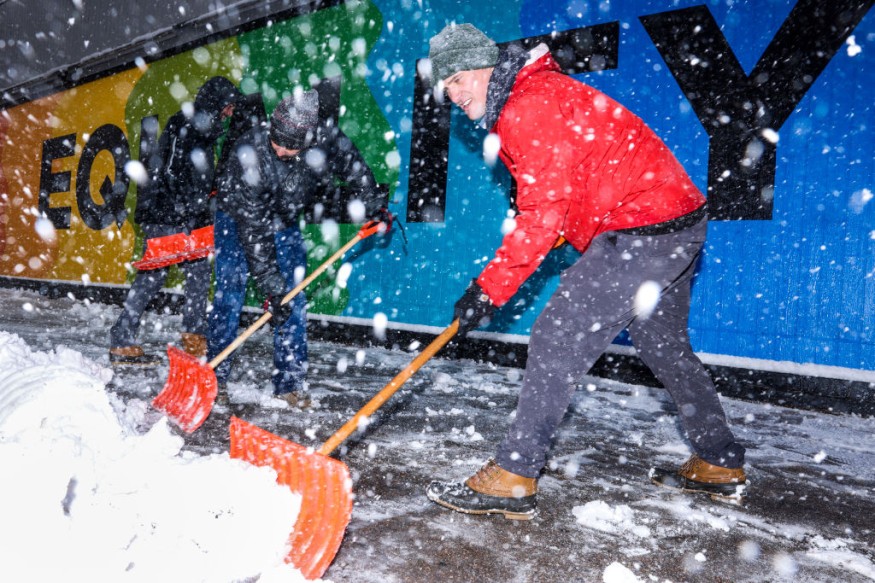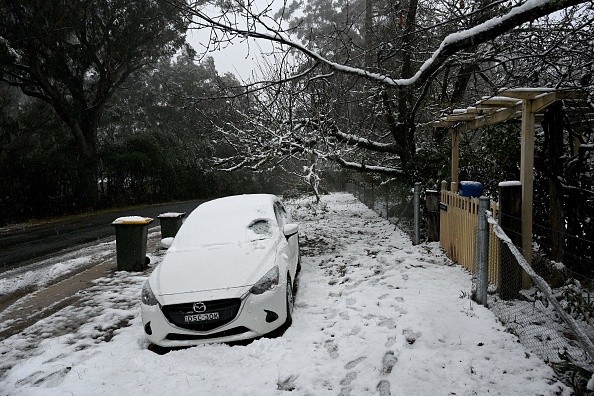This fall, Denver has had a unique weather pattern, and despite a close call last week, the Mile High City has shattered a record that has stood since 1934.

Meteorologists believe the next possibility for major accumulation in the Mile High City might be weeks away, breaking the city's record for the latest first measurable snow. The most recent date on which Denver had snowfall was November 21, 1934.
Denver's Snow
The last time snow fell in Denver was on April 21, and for a brief minute this week, it appeared like the snowless run was going to end.
On Wednesday, November 17, Meteorologist Joseph Bauer said, "There was a band [of snow] that touched downtown Denver this morning and generated several flakes." While there were flurries in the air on Wednesday morning, official meteorological measurements from Denver International Airport found not enough snow to be called measurable.
Around October 18, Denver usually gets its first snowfall of the new snow season.
At least 0.1 inches of snow must collect to be deemed measurable snow. Meteorologists define a "trace" of snow as snow that falls but does not collect more than 0.1 inches in depth.
Although there was a trace of snow at Denver International Airport on October 15 and again on the first two days of November, Colorado's capital city has received zero inches of snow for the 2021-2022 winter season.
Related Article : Intense Arctic Blast Will Bring Cold Air to the US
Current Snow Season

This is in stark contrast to the 2020-2021 snow season, which was one of the snowiest in Denver's history, owing in part to early-season precipitation. Last year, on September 8, an inch of snow fell, making it one of the earliest snowfalls in the city's history. Over 80 inches of snow had fallen by the conclusion of the season, the most in 37 years.
On Sunday, November 21, the Mile High City residents awoke to chilly but bright circumstances, guaranteeing that a new record was about to be established. Sure enough, no measurable snow had fallen by Monday, November 22, although the November 21, 1934 record had been broken.
It's uncertain when the snowless stretch will end, with snowfall forecasted to be scarce until December.
Just a Little More Waiting
According to Long-Range Meteorologist Paul Pastelok, "Denver may have to wait until the second or third week of December for any significant snow in the city."
Another snow record might be in threat if the weather continues to be mild.
Denver has been snow-free for almost 212 days, the fifth-longest period on record. If the long-term prognosis holds, Denver might establish a new record for the longest time without snowfall.
This season's dearth of snowfall in Denver may be linked to a meteorological event hundreds of miles offshore in the Pacific Ocean.
La Niña, according to Pastelok, might be too responsible for the lack of snow.
La Niña
La Niña is a Pacific Ocean phenomenon characterized by lower-than-average water temperatures near the equator. This can alter the jet stream and the path that storm systems follow as they pass over North America.
Storms are moving quickly from the Northwest through the Plains because of the current La Niña-influenced weather pattern.
"The storms appear to be wrung out in the Northwest before picking up moisture in the eastern Plains and Midwest," Pastelok said. As a result, the Front Range is hot and dry, with minimal rain or snow around Denver.
In the meantime, the weather pattern is directing snow to other parts of the country. Snow is expected to fall over the Midwest in the coming days, according to meteorologists.
For more news the environment, don't forget to follow Nature World News!
© 2026 NatureWorldNews.com All rights reserved. Do not reproduce without permission.





